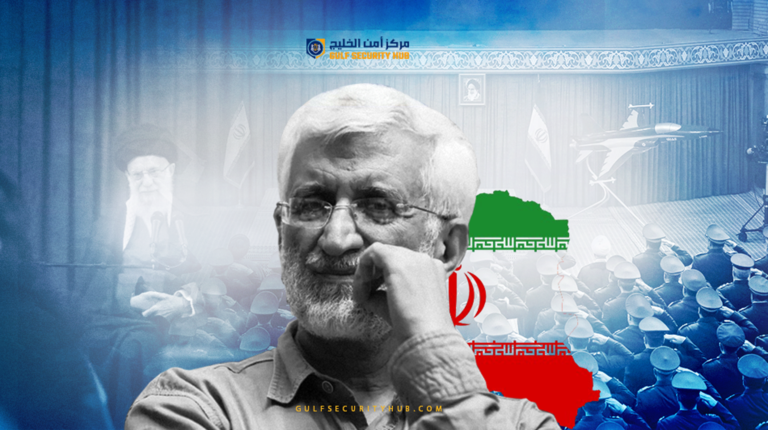Despite his modest electoral record, Iranian politician Saeed Jalili stands out as one of the most influential figures within Iran’s decision-making circles. This leading figure in the “Steadfast Front” (Jebhe-ye Paydari) can be considered the conductor of Iran’s deep state and the public face of one of the most influential cells embedded within all branches of the state—ranging from the government and military to the Revolutionary Guard, the Guardian Council, the Expediency Council, the Islamic Consultative Assembly (Parliament), and even the religious seminaries (Hawza).
While the ballot boxes reveal Jalili’s limited popular support, his political convictions and ideological leanings play a significant role in shaping the political landscape of the Islamic Republic.
Jalili hails from the city of Mashhad and holds a doctorate in political science from Imam Sadiq University—a key institution for producing Iran’s conservative political elite. He began his career in the Islamic Revolutionary Guard Corps (IRGC), participating in the Iran-Iraq War before transitioning to the Ministry of Foreign Affairs, where he quickly climbed the ranks to hold sensitive government positions.
Jalili served as Secretary of the Supreme National Security Council from 2007 to 2013, a period marked by heightened tensions over Iran’s nuclear program, during which he acted as the country’s chief negotiator. His appointment reflected the trust placed in him by the Supreme Leader, making him one of the key figures involved in shaping Iran’s security and defense policies. He currently serves as a member of the Expediency Council.
Despite his rapid political rise and his complex network of allies within the IRGC, the Guardian Council, Parliament, and other key state institutions, Jalili’s electoral record is filled with failures. He has lost two presidential elections, withdrawn from another, and failed twice to secure a seat in Parliament.
The Steadfast Front: The Enforcer
The Steadfast Front (Jebhe-ye Paydari) was established in 2011 by hardline religious and political figures. It is known for its fierce opposition to rapprochement with the West and internal reforms. The Front holds considerable influence over Iranian politics, especially among hardline conservatives. Although Jalili himself has repeatedly failed to win a parliamentary seat, the Front’s candidates often secure victories in legislative elections.
Ayatollah Mohammad-Taqi Mesbah-Yazdi (who died in 2021) is considered the spiritual father of the Steadfast Front. Today, Saeed Jalili, alongside the conservative cleric Morteza Agha-Tehrani and the politician Hamid Rasaee (the Front’s spokesperson and public face), are the main figures driving the Front’s growing influence in Parliament, the IRGC, and constitutional bodies.
The Steadfast Front enjoys strong backing from a wide network of Iranian businessmen and economic actors who have benefited from Western sanctions and Iran’s closed economy. These figures, known in Iran as “sanctions traders,” are accused of channeling their wealth into electoral campaigns aligned with Jalili and his allies.
Although none of the Front’s official candidates have reached the presidency, the Front follows a dual-track strategy: staunchly supporting conservative governments while aggressively undermining reformist administrations. The Front was a close ally of the Mahmoud Ahmadinejad and Ebrahim Raisi governments but actively obstructed the Hassan Rouhani and Masoud Pezeshkian administrations. The most recent example of this obstruction was the ousting of Minister of Economy Abdolnasser Hemmati just six months into his tenure under parliamentary pressure from the Front.

